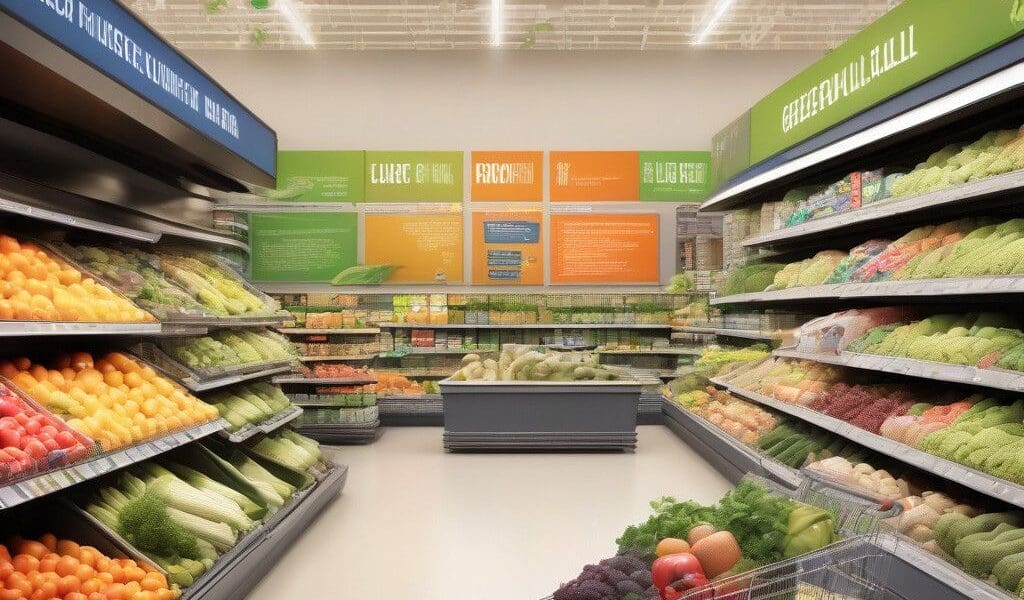As 2024 unfolds, ALDI sets significant sustainability goals, aiming for a full transition to natural refrigerants in all its stores by the end of 2035. ALDI’s ongoing efforts in sustainability not only showcase its commitment to the environment but also enhance its reputation within the grocery retail sector. This week, ALDI reported that it has secured more GreenChill Store Certifications at the highest platinum level than any other participating U.S. grocer for three consecutive years. Furthermore, 164 ALDI locations spread across 23 states have been honored with the GreenChill Store Re-Certification Excellence, a recognition for maintaining platinum-level certifications for five continuous years.
The GreenChill program, administered by the U.S. Food & Drug Administration (FDA), encourages grocery stores to reduce refrigerant emissions. The recognition of ALDI’s achievements in this domain reflects its strategic focus on sustainability as a core aspect of its operations. Currently, more than 700 ALDI stores utilize eco-friendlier refrigerants, which align with the company’s ambitious plan to reduce carbon emissions by 60% each year. Dan Gavin, VP of national real estate, pointed out, “Natural refrigerants not only help us keep our products fresh but also reduce our impact on the planet.”
ALDI’s commitment to sustainability extends beyond refrigeration, as highlighted in their recently published 2023 Sustainability Progress Report, now accessible online. This comprehensive report details the retailer’s achievements in cutting emissions, enhancing packaging, minimizing waste, sourcing responsibly, and supporting community initiatives.
Among the standout initiatives in the report are:
1. Plastic Reduction: By eliminating plastic shopping bags at checkout, ALDI prevents almost 9 million pounds of plastic from entering circulation annually. This significant change reflects ALDI’s efforts to minimize single-use plastics and promote a more sustainable shopping experience.
2. Packaging Enhancements: ALDI has identified various methods to improve its packaging across product categories. This includes increasing the use of post-consumer recycled content, as well as transitioning to fiber-based alternatives that can be easily recycled.
3. Waste Diversion: ALDI has successfully diverted 76% of its operational waste from landfills. In 2023, the company sent 2,013 tons of food to compost and anaerobic digestion facilities, marking a 22.4% increase from the previous year.
4. Energy Efficiency: The retailer has piloted the installation of multi-deck unit doors on its deli sections in 55 stores. These doors have led to a reduction of energy usage by up to 25%, thus helping lower overall emissions.
5. Deforestation Commitments: ALDI has accelerated its timeline to eliminate deforestation in high-priority supply chains, contributing to global biodiversity preservation and climate change mitigation efforts.
6. Community Support: ALDI has deepened its partnerships with organizations like Feeding America and Boys & Girls Club, delivering 39 million pounds of excess food in 2023. This amount is equivalent to providing 32.5 million meals for those in need.
7. Financial Contributions: The retailer contributed over $6 million to Alex’s Lemonade Stand Foundation, reaching more than 60% of its target to raise $10 million by 2027, which indicates a strong alignment of corporate social responsibility with community health initiatives.
8. Sustainable Sourcing Goals: ALDI aims to certify 100% of its private-label coffee as responsibly sourced by 2025, underscoring its commitment to ethical sourcing practices.
ALDI USA’s CEO, Jason Hart, stated in the sustainability report that the company is on track to become the most sustainable grocer in the U.S. while experiencing robust growth. “With more than a quarter of U.S. households shopping at ALDI stores, demand for our quality, affordable groceries is at an all-time high,” he mentioned. To meet this demand, ALDI plans to open over 800 new stores nationwide in the next five years, which reinforces its vision of integrating sustainable practices into its broader business strategy.
In line with this commitment, ALDI’s sustainability manager, Jason Schultz, will speak at Progressive Grocer’s Grocery Impact event in Orlando, Fla. on November 6, further outlining the company’s initiatives and results in a session titled “Grocers as Good Neighbors” alongside industry leaders from Amazon Access and Dollar General.
With over 2,300 stores across 38 states and millions of customers served monthly, ALDI stands as a prominent player in the U.S. grocery market. The company was recently ranked No. 28 on Progressive Grocer’s 2024 list of top food and consumables retailers in North America and was honored with the accolades of Retailer of the Year for 2023 and inclusion in the top 10 Most Sustainable Grocers for 2024.
As consumers increasingly prioritize sustainability, ALDI’s roadmap showcases the intersection of retail growth and responsible practices. By aligning its business model with environmentally conscious methods, ALDI not only meets customer expectations but also sets a benchmark for sustainability in the grocery market.











